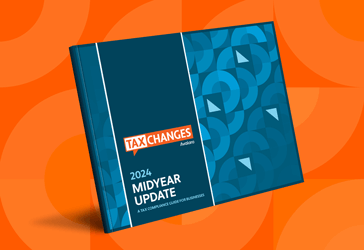Excise taxes and fuel delivery services: What companies need to know
Anyone who commutes in big cities like Boston, Chicago, and Los Angeles has probably heard about fuel delivery services. Rather than pumping gas at a hard-to-find or difficult-to-access corner convenience store, drivers can use a smartphone app to have gas delivered directly to them.
The idea is simple, yet strikingly brilliant: For a small monthly subscription fee, customers can have their gas tanks filled while they're asleep or at work.
For fleets, the benefits are even greater: Trucks and equipment can be refueled right on site, with deliveries dispatched at regular intervals or on an as-needed basis.
On the surface, these mobile refueling services are the latest innovation in an era of ease and convenience. Under the hood, however, are complications that have the potential to put unprepared companies in a difficult position come tax time.
The fuel tax complexities of gas deliveries
At a glance, fuel taxes can seem relatively straightforward — particularly when you consider consumer vehicles. If a refueler is simply loading up at a convenience store to sell below the rack, there’s a good chance sales and use tax has already been bundled into the cost of gasoline and paid for up front.
But what if that initial transaction does not require taxation since the fuel is to be resold? In this scenario, taxes need to be calculated based on where each fuel delivery takes place. And those determinations are far from simple, since sales and use tax can vary from one side of the street to another. If the company is using a sales and use tax solution that determines fuel taxes based on ZIP codes alone, the risk of errors can be significant.
When a business forgoes gas stations to purchase at the rack and deliver directly to fleets, the tax ramifications become even more intricate. In this setup, the entire burden of tax determination is with the company. Spill fees, environmental fees, and countless other excise fees can come into play.
For these reasons and others like them, lawmakers are closely watching mobile refueling to determine how and when to tax this changing industry. And that means fuel delivery companies will need to closely monitor the landscape for rule and rate changes. There are thousands of different taxing jurisdictions in the U.S., and each one will be taking its own approach to where, when, and how fuel is taxed.
The question to ask is: How will your company stay compliant?
Tips for managing fuel tax complexities
If your confusion level has hit an all-time high, take heart. While fuel taxes are arguably the most complex type of taxation, there are ways to make them manageable.
In recent years, new solutions have surfaced to help mobile refueling companies with tax calculations and compliance.
Here's what to watch for:
- First, make sure you have a system in place to monitor rates and requirements as they change. It’s important to remember that fuel tax laws are constantly evolving. To remain compliant, you'll need to manage both sales and use tax, and excise tax changes on an ongoing basis.
- Next, using geospatial intelligence can more accurately identify delivery destinations. Because rates and requirements can vary widely from one location to another, geospatial tools are an increasingly important component of compliance. A GIS-powered platform will use exact latitude and longitude pairs to determine taxes for each transaction.
If your fuel delivery company is becoming increasingly concerned about calculations and compliance, fuel tax automation can help. Learn more about Avalara’s excise tax solutions or call us at 877-803-9818.
Stay up to date
Sign up for our free newsletter and stay up to date with the latest tax news.













